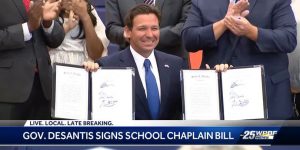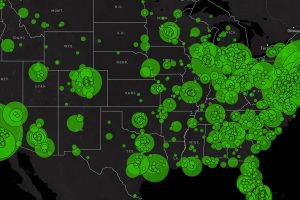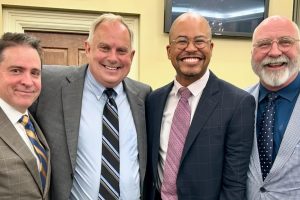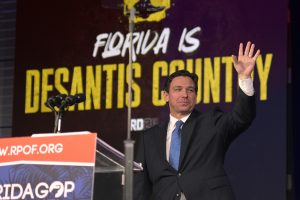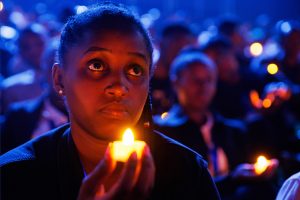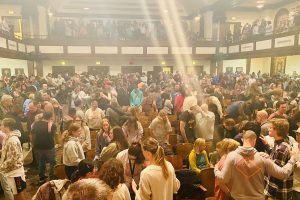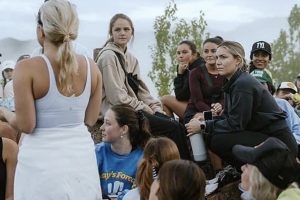The recent uprising in Baltimore has occupied our screens and dominated our conversations for more than a week now. Protestors there pricked the consciences of the nation in their cries for justice for Freddie Gray. At some point, a small number of individuals resorted to looting and setting fires in the vicinity of the protests, attracting huge national media attention from those ready to exploit the pain for a story. In the confusion that followed, what was clearly a just protest done by non-violent means lost much of its popular support, and in some eyes, its moral clarity. This was the question that kept coming up to express that change of heart: “How could they do that to their own neighborhood?”
It is not clear to me that this is a question in search of an answer. What is clear is that this question relies on a rose-colored view of American history. Even cursory attention to the history of our cities makes clear that the destruction of Black neighborhoods is a regular and ongoing feature of American history.
My city, Charlotte, NC, illuminates this well. In the 1960’s and into the 1970’s, Charlotte began to take funding from the federal government’s so-called Urban Renewal program. This federal funding was reserved for “slum clearance.” Those slums – as they were called in media and by local officials – were razed for public infrastructure projects, many of them highways and expressways. In Charlotte, one of the largest projects was the construction of our downtown expressway loop.
The basic intentions of these sorts of projects – which happened in every nearly city around the nation – was to bring renewed life to center cities by making travel into those cities quicker for suburban residents coming to work. Planners failed to recognize that a quick way into downtown was also a quick way out of downtown, turning center city Charlotte into a ghost town after 5PM. The racial implications of Urban Renewal were plain to see, though they often went unnamed.
In Charlotte, among the areas razed in Urban Renewal was a thriving Black neighborhood called Brooklyn. It was home to more than 1000 people, 200 businesses, several dozen churches, an important school, social clubs, restaurants, two movie theaters, and countless other diverse uses. Brooklyn was the kind of neighborhood that is now trendy in every city across the country. But in the early 60’s, it was condemned and razed. Today, there is no evidence it existed. That area is now home to a depressing-looking city office building, an unused park, and multiple parking lots. Brooklyn was wiped off the map.
A mile west stood another Black neighborhood historically called Woodlawn. It was less-storied than Brooklyn, but it was a functioning neighborhood for its residents. In the 1970s, Woodlawn was condemned and razed. It was replaced with a below-grade portion of the downtown expressway loop. The economic logic of this decision should be stated in the plainest terms: The City of Charlotte, together with the state of North Carolina and acting with the full force of the government of the United States, determined that a hole in the ground was more valuable than a Black neighborhood.
Urban Renewal sought to clear “slums,” and in many cases, neighborhoods like Brooklyn had seen better days. One significant reason that Brooklyn had seen better days was redlining. Redlining was the policy, enacted by the United States government through the Federal Housing Administration, that prevented federally subsidized loans from being offered in neighborhoods with even a single Black resident. This practice, along with other practices of enforcing racial codes in housing segregation, isolated Black neighborhoods from the flow of capital need to make improvements to neighborhoods. And again, this was done as an official policy of the government of the United States of America. This is a history that we ignore, though many of the people who were harmed by redlining and by Urban Renewal are still alive. (This article by Ta-Nehisi Coates is an excellent introduction into this history and its implications.) People whose land was seized and whose businesses were destroyed are still active members of our communities whose voices can be heard. They have important stories to tell. This history is easily accessed with or without those people, but we choose not to know it.
And this history continues to be made. A map of the areas most affected by the financial crisis of 2008 will show that the neighborhoods hit hardest by the sale of fraudulent mortgages are typically Black neighborhoods. This NY Times story from 2009 documents some of those abuses in Sandtown, the Baltimore neighborhood where Freddie Gray was arrested and murdered in April.
The right question is not “How can they do that to their own neighborhood?” Some better questions might be: Why do we keep destroying Black neighborhoods, and the Black lives that populate them? Why does this pathology exist in our history? Why do we not care enough to root it out?
Long before that CVS on North Avenue in Baltimore was set on fire, Sandtown had been looted by redlining, by Urban Renewal, and by predatory lending practices robbing it of its wealth. All this was made possible by the policies of local, state, and federal government, which is to say, we did it. How could we loot our own neighborhoods? How could we keep harming our brothers and sisters? When will we repent and repair the damage?

